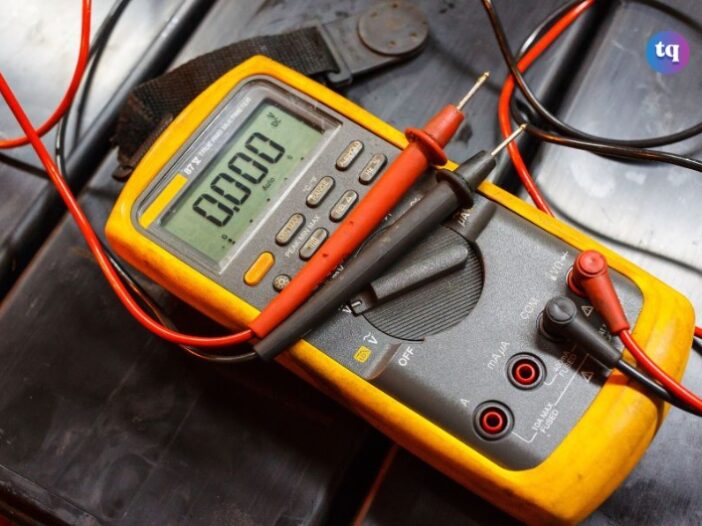
Electrical engineering is a field that thrives on precision. Regardless of your level of expertise, mastering the right equipment is crucial, and your measuring tools will help you get the job done. Use these essential measuring tools every electrical engineer should know, each offering unique benefits that significantly enhance your work and understanding.
Table of Contents
Digital Multimeter
A digital multimeter (DMM) is perhaps the most versatile tool in an electrical engineer’s arsenal. It measures voltage, current, and resistance with high accuracy. Modern DMMs often come with additional features like continuity tests and diode testing.
They are essential for troubleshooting electrical issues and conducting regular maintenance checks. As engineers need to measure these values for quick calculations and estimates, the DMM is a must-have for any electrical engineer expecting to work on many projects.
Oscilloscope
When visualizing electrical signals, an oscilloscope is your go-to tool. This tool provides a graphical representation of voltage over time, allowing engineers to analyze waveforms, frequency, and jitter. Many electrical engineers use oscilloscopes to measure the direction of a current, helping determine complex analyses of complex systems.
Oscilloscopes are particularly useful in measuring the direction of a current to diagnose issues in complex circuits and systems. By displaying signal behavior in real-time, they help you understand how circuits respond to various inputs, making them invaluable for learning and professional troubleshooting.
Signal Generators
Signal generators are essential for testing and designing circuits. They produce various electrical waveforms, such as sine, square, and pulses. These tools help engineers simulate different operating conditions and stress-test their designs.
The role of a robotics engineer relies on electrical engineering know-how and often involves many calculations of a machine’s function and how certain digital signals affect performance. Whether you’re working on communication systems or audio equipment, signal generators offer the flexibility to create and manipulate signals, making them indispensable for prototyping and testing new ideas.
Power Quality Analyzers
Power quality analyzers are specialized tools used to assess electricity lines for issues or disturbances. They measure parameters like voltage, current, harmonic distortion, and power factor.
These tools are crucial for identifying power quality issues that affect the performance and longevity of electrical equipment. By analyzing power quality, engineers implement solutions to mitigate issues like voltage sags, swells, and harmonic distortions, ensuring a more stable and efficient electrical system.
Infrared Cameras
Infrared cameras detect heat patterns in electrical systems. They help engineers identify overheating components, loose connections, and other thermal anomalies that could indicate potential failures.
By providing a visual map of temperature distribution, infrared cameras enable preventive maintenance and timely intervention, reducing the risk of unexpected breakdowns and improving overall system reliability. Every engineer should know these measuring tools and how to wield them; understanding and effectively using them makes a significant difference in the field. From the versatile digital multimeter to the diagnostic power of infrared cameras, each tool brings its unique advantages. Incorporating these devices into your toolkit enhances your ability to troubleshoot, design, and maintain electrical systems with greater precision and confidence.